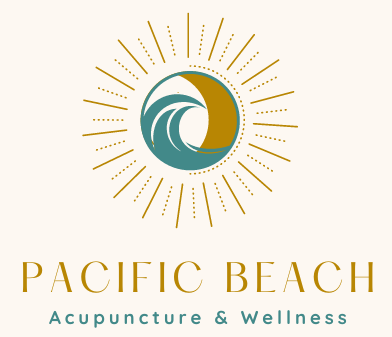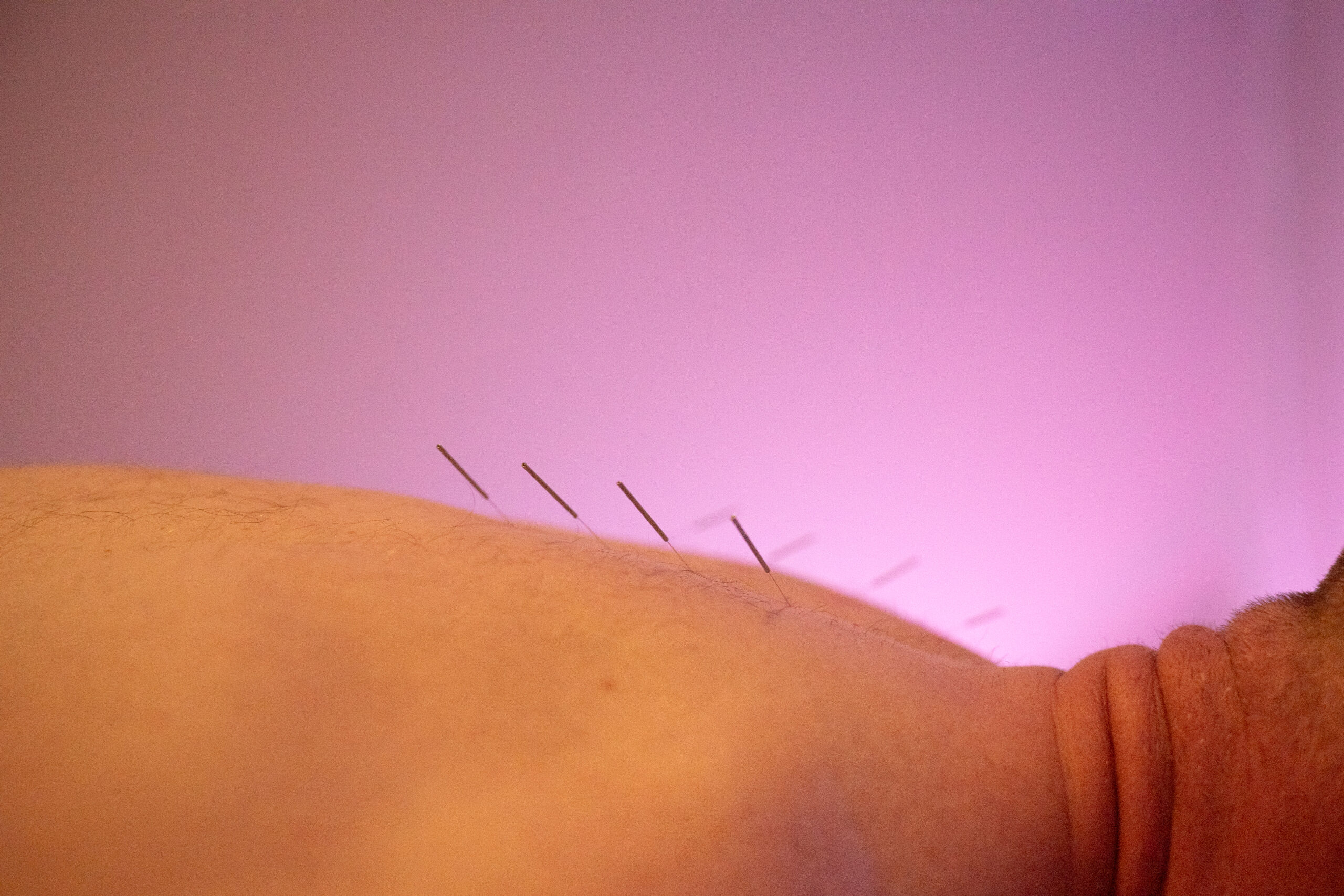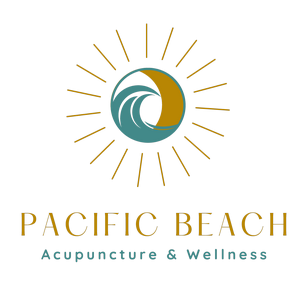Why Your Body Craves Certain Foods: A Holistic Look at What Your Cravings Really Mean
Do you find yourself craving certain foods when you’re stressed out? Something just feel so comforting about that warm chocolate chip cookie or that crunchy bag of potato chips, but you consider the nutritional value and wonder why does my body ask for this? Food cravings can feel random, but cravings are messages or signals from your body. They’re communicating that something is out of balance, missing, or in need of nourishment.
At Pacific Beach Acupuncture, we look at cravings through two perspectives
- Nutrition — what vitamins, minerals, and macronutrients your body might be lacking
- Chinese Medicine — what organ systems or emotional patterns may be signaling for support
When you understand why your body craves certain foods, you’re better equipped to nourish yourself in a balanced, supportive way.
When You’re Craving Sweets:
Nutritional Perspective:
Sugar cravings often arise when blood sugar dips too low or when your body lacks key nutrients involved in energy production. Common deficiencies include:
Magnesium
Found in: leafy greens (spinach, Swiss chard), almonds, pumpkin seeds, avocado, black beans, and cacao.
Why magnesium matters:
Magnesium is involved in more than 300 biochemical reactions in the body. It supports:
-
Blood sugar regulation
-
Stress adaptation and nervous system relaxation
-
Energy production
-
Muscle and nerve function
-
Deep, restorative sleep
When magnesium is low, you may feel tense, irritable, anxious, or fatigued — all triggers for sugar cravings.
Chromium
Found in: broccoli, green beans, eggs, tomatoes, whole grains, grape juice, and lean meats.
Chromium enhances insulin sensitivity and helps maintain stable blood sugar. Low chromium levels can lead to cravings for quick, sugary energy because your cells aren’t efficiently using glucose.
B Vitamins (B1, B6, B12)
Found in: eggs, fish, poultry, nutritional yeast, legumes, whole grains, bananas, and dark leafy greens.
B vitamins help convert carbohydrates into usable energy while supporting brain and nerve health. When deficient, your body may seek fast-burning carbs and sweets to compensate for low energy production.
Chinese Medicine Perspective:
In TCM, sweet cravings point to an imbalance in the Spleen — the organ system responsible for digestion and energy production. When the Spleen is weak, you may feel:
-
Fatigue
-
Brain fog
-
Bloating or loose stools
-
Worry or overthinking
Sweet foods temporarily boost energy, but over time they weaken digestion further, creating a cycle of cravings. Acupuncture can target the spleen meridian to support digestion and enhance the effects of your diet.
Why You Crave Salty Foods
Nutritional Perspective
Salt cravings can occur when your body is low in key minerals and electrolytes that regulate hydration, nerve function, and the stress response.
Electrolytes (Sodium, Potassium, Magnesium)
Why they matter:
Electrolytes maintain fluid balance, support nerve signaling, regulate muscle function, and keep blood pressure stable. When you sweat, feel stressed, or become dehydrated, electrolyte levels drop — and the body may crave salt to rapidly restore balance.
Food sources:
-
Sodium: sea salt, pickles, bone broth, fermented vegetables
-
Potassium: bananas, sweet potatoes, avocados, coconut water, spinach
-
Magnesium: nuts, seeds, leafy greens, cacao, legumes
Iodine
Why it matters:
Iodine supports thyroid function, which regulates metabolism, energy levels, and temperature balance. If your thyroid is under-functioning, salt cravings may appear.
Food sources:
Seaweed, iodized salt, eggs, dairy, seafood
Signs you may be low:
Fatigue, cold hands/feet, brittle nails, muscle cramps, headaches, or feeling lightheaded.
Chinese Medicine Perspective
Salty cravings correspond with the Kidney system, which governs hormones, vitality, willpower, and the stress response.
When the Kidneys are depleted, the body seeks salt instinctively to replenish lost energy and restore balance. Acupuncture points focused on the kidney meridian can help restore balance in addition to nutritional adjustments.
If You Crave Carbs or “Comfort Foods”
Nutritional Perspective
Carb cravings often happen because your body is seeking quick energy or trying to boost your mood.
Tryptophan
Why it matters:
Tryptophan is an amino acid used to make serotonin — the “feel-good” neurotransmitter. When serotonin dips, the body craves carbs because carbs help tryptophan enter the brain more easily.
Food sources:
Turkey, eggs, oats, pumpkin seeds, salmon, bananas
Low caloric intake or low protein
If you’re under-eating, skipping meals, or not eating enough protein, the body demands fast-burning energy like bread, pasta, and sweets.
Food sources:
Lean proteins, beans, lentils, tofu, quinoa, nuts
B vitamins
B vitamins convert carbohydrates into energy. When low, your body may crave carbs to compensate.
Food sources:
Whole grains, legumes, eggs, dark leafy greens, poultry, nutritional yeast
Chinese Medicine Perspective
Carb cravings relate to the Spleen and Stomach (Earth element), which thrive on warmth and routine.
Stress, overthinking, and irregular eating weaken the Spleen, increasing cravings for grounding, sweet, or dense foods.
Why You Crave Fatty or Rich Foods
Nutritional Perspective
Fat cravings can mean your body needs real, healthy fats to support hormones, brain function, and cellular repair.
Omega-3 Fatty Acids
Why they matter:
Reduce inflammation, support brain health, regulate mood, balance hormones, nourish skin and hair.
Food sources:
Salmon, sardines, walnuts, chia seeds, flaxseed
Essential Fatty Acids
Why they matter:
Needed for hormone production, nerve function, and anti-inflammatory pathways. Deficiency can lead to fatigue, dry skin, and cravings for heavy foods.
Food sources:
Olive oil, avocado, nuts, seeds, tahini
Low calorie intake or unstable blood sugar
If you aren’t eating enough or go too long without meals, cravings for calorie-dense, fatty foods appear.
Chinese Medicine Perspective
Cravings for rich or greasy foods may indicate Liver or Gallbladder imbalance.
These organs regulate digestion of fats and control stress, decisiveness, and emotional flow. When stagnant or overburdened, cravings for heavy foods show up as a grounding mechanism.
If You Crave Crunchy Foods
Nutritional Perspective
Crunch cravings often come from the body seeking stimulation during stress or trying to release tension through the jaw.
Trace Minerals
Why they matter:
Trace minerals help the nervous system regulate stress and neurotransmitter balance. Deficiencies may increase tension and drive “crunchy” cravings.
Food sources:
Pumpkin seeds, seaweed, whole grains, nuts, cacao, mineral-rich salt
Stress or emotional tension
Crunchy foods activate the jaw muscles and can trigger a stress-relieving response, providing temporary release.
Chinese Medicine Perspective
Crunch cravings relate to the Lung and Large Intestine system, which governs boundaries, grief, control, and letting go.
People who crave crunchy foods are often processing emotions, tension, or mental overload.
How to Support Yourself & Reduce Cravings
Eat balanced, regular meals
Stabilizes blood sugar and reduces emotional eating.
Prioritize warm, cooked foods
Strengthens digestion and lowers sweet cravings.
Strengthen your adrenals
Minimize caffeine, hydrate, and get 7–9 hours of sleep.
Support digestion
Eat mindfully, avoid excess raw food, sip warm teas.
Manage stress
Stress is one of the biggest driving forces behind cravings.
How Acupuncture Helps Restore Balance
Acupuncture naturally:
-
Regulates blood sugar
-
Balances hormones
-
Supports adrenal health
-
Calms the nervous system
-
Improves digestion and metabolism
-
Strengthens the Spleen and Kidney systems
-
Reduces stress-driven cravings
When your body is aligned and nourished, cravings naturally lessen because your needs are being met on a deeper level.
Book your acupuncture treatment online today and start supporting your body in the way it truly needs.
More Services
Many people think of acupuncture as something to try only when they’re already in pain or feeling unwell. But in Traditional Chinese Medicine (TCM), acupuncture has long been used as preventive medicine helping the body stay balanced, strong, and healthy so illness doesn’t take hold in the first place. By promoting wellness we are essentially preventing illness.
We have the key to natural pain relief in Pacific Beach. Acupuncture reduces pain by targeting the issue from multiple angles. Some of the conditions we treat most often are back pain, neck and shoulder pain, pain from sports injuries, and chronic muscle tightness.
When you’ve been doing all the right things and still don’t feel quite right, your nervous system may be signaling a need for gentle support. Many of us live in a state of fight or flight fueled by stress, overstimulation, and constant activity always on the go, making our way to the next thing. But sometimes less is more, our minds are used to staying busy, but our bodies are quietly asking for a pause.




